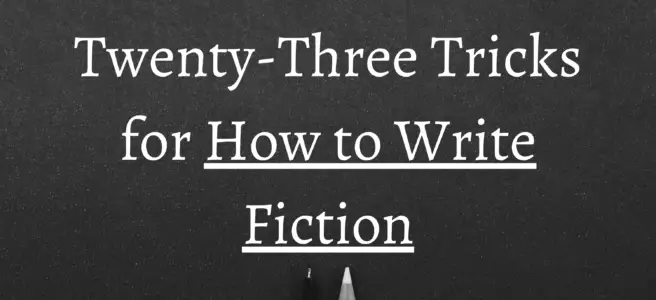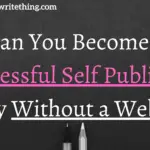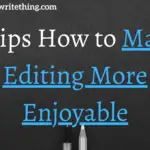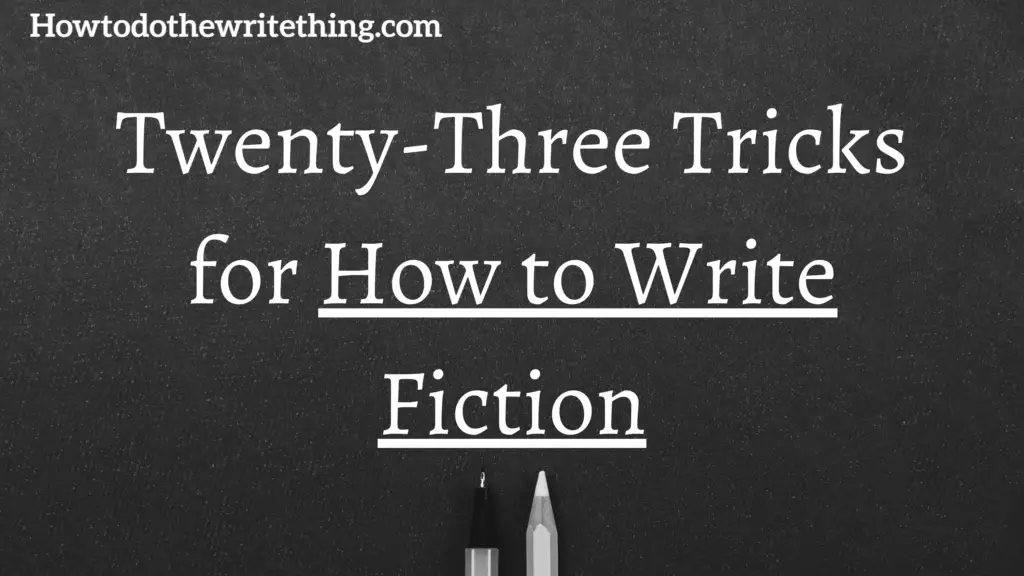
Twenty-Three Tricks for How to Write Fiction
Learning how to write fiction can be tough, but with these tricks, you will be well on your way to being a pro. Use these writing tips to make the difficulty of writing fiction a thing of the past for you.
Keep it simple.
Take a deep breath and don’t stress out. When you learn the tricks that the pros use you will realize that there is a formula for writing fiction and as long as you follow the guidelines, you can get creative and bring out a masterpiece. Don’t make it overly complicated for yourself.
Choose a point of view.
You can choose first, second, or third point of view. Each has its own advantages and disadvantages. Most of the time when you are writing fiction it makes sense to write in third person. In third person you can have an omniscient point of view or a limited point of view. You can either be the narrator that knows everything or what you know is limited to what your main character knows. You can write in multiple points of view. Authors like C.S. Lewis would do this at strategic times to have fun with his reader and it gave his writing a specific tone. For example, he might say, “they rode in a sleigh all the way to the castle. Now, this wasn’t just any horse cart sleigh mind you…” He would be describing the characters’ situation but then he might write as if he were talking to the reader. This creates an interesting dimension to the telling of the story from the author. You’ll have to decide for yourself what points of view you’ll write in and why.
Show, don’t tell.
Make every effort to show your reader what you are talking about. Don’t always tell them. Instead of saying, “Molly walked angrily away.” You might say, “Molly was fuming. She had never been so offended in all her life. She turned and stomped out of that room so loudly that the children two floors down heard the commotion.”
Only take the time to explain and describe important details to moving the story along and revealing character personalities as you go.
Create multidimensional characters.
Having a character with a name is great, but how do you make them interesting? We make them interesting and multidimensional by making them not static. A static character has no personality and doesn’t do much change. A dynamic character will experience major emotions and will most likely change throughout the story just like a real person does. Another thing that makes a character multidimensional is having character flaws. People in real life are not perfect and this makes them interesting. Make sure your fictional characters have flaws as well when you are writing fiction.
What does my character want?
When creating your fictional character it only makes sense to give them motivations. In order to figure out why they are doing what they’re doing you need to ask yourself, “What does my character want?” “What is their ultimate desire?” Every fictional character has motives. The villain has motives. The main character has motives. They usually go against each other’s goals and motives which is what makes them enemies. Even side characters have motives. Make sure you know what they are, that they make sense, and that the reader knows what they are.
Take your phone or notepad everywhere.
I say take your phone and use the notes app, but just in case you don’t have that the point is to have a writing device whether it is a phone or a pencil on you at all times. Ideas strike out of nowhere most of the time. They happen spur of the moment. You need to be able to write them down immediately when they come. You might think, “it’s okay. I’ll just write it down later.” No! Most often you will forget.
Remember, the pen is sharper than the brain.
Research what you don’t know.
If you want to be better at writing fiction, you must be a pro at research. Let’s say you want to write a good western but don’t know much about the real-life customs of the past. Just look it up. As you are learning, write things down for later. For instance, many cowboys were cattle ranchers. Much of the cow population was actually imported from Spain from Spanish Conquistadors. Did you know that your beef’s ancestry might be from Spain, making all American beef cuisine a Spanish food?
Not all the facts you find will be good for your story, but finding them is important nonetheless.
Do exercise.
If you want to write good fiction your brain needs to be sharp. In order to keep it sharp, you should do regular exercise to keep the blood flow very good to your brain.
Especially back exercises. As a fiction writer, long hours of writing will take their toll on your posture and your back.
Write what you know.
Even though researching what you don’t know is key to coming up with really good fiction by throwing in true facts with the fictional story, writing using your own experiences can be extremely helpful.
If you grew up in foster care, you can write a story about foster care that dives deeper into the reality of it than someone that just does menial research.
If you are a professional scuba instructor, you can write a story about being deep in the ocean better than someone who has never been there and experienced the emotions that come up and why.
Write about what fascinates you.
This doesn’t mean to write just anything. This means that if you find a particular subject fascinating it is likely someone else does too.
Start with something you find interesting and go see if many others find it interesting too. If so you know you can write about it and it will work.
To quote Robert Frost, “No tears for the writer, no tears for the reader.”
If your story doesn’t move you emotionally, it is unlikely to be that inspiring to somebody else. Make sure that your story doesn’t bore you, then you can tell whether it’ll bore someone else. If it isn’t your best, scrap it or rewrite. Give it your best so that it is sure to succeed.
You know you have something really amazing if you can muster the strength to write something traumatic in your life that causes you to tear up when you talk about it.
Hold your reader’s attention.
Hold your reader’s attention by creating questions in your reader’s mind that you will answer later.
Get ready to work.
Writing fiction isn’t easy and will take work. You need discipline and willpower to really get it done. Daydreaming about writing and being a writer is much different than actually sitting down and writing 90,000 words that add up to a good story.
Don’t be afraid to use a thesaurus.
For the most part, you will want to use simple words that don’t distract your reader from the image you are trying to paint them with words, but every now and then you will find a word that works better than words like, “pretty,” “beautiful,” and “bright.”
Take breaks to get fresh eyes.
Read something else or step away from your writing for a day if you need to get a fresher pair of eyes on it. I like to write whatever I’m going to fast and then step away from it and read it later to see with fresh eyes what needs to be edited. Unfortunately, you can never be completely fresh. You wrote it. But this technique is very helpful.
If you get blocked, trace your steps back.
If you’re in the middle of a scene and it doesn’t seem to be going anywhere for days sometimes it’s better to work backward and see if there was a different path to take. One that might lead to more interesting possibilities.
Celebrate small achievements.
If you wrote your first 1,000 words that is worth celebrating. If you started to research, that is worth celebrating. If you got out of bed, that is worth celebrating.
Take time to feel good about what you accomplish and press on.
Name your story while you are writing it or before.
It’s important to own your work. Make sure you like the name as you are going because in time you might find it more interesting to be called something else. Don’t waste time on the name, just pick one and let it change as it makes sense.
Eliminate distractions.
Do not surf youtube or Facebook while you are trying to write. Just write and research until you are done for the session or for the day. There is nothing wrong with a 15-minute break, but ten 15-minute breaks are not helpful.
Allow your ideas to change.
Keep the old ideas, but allow things to change. Roddy Doyle once said, “Do change your mind. Good ideas are often murdered by better ones.”
Take a long walk.
Instead of staring at the blank page endlessly, take a walk. Oftentimes a solution will present itself when we walk away.
All authors get stuck.
I don’t care who you are, expect to get stuck. Expect writer’s block. Anticipate these enemies as if they were outside your house and they have guns and they have sworn vengeance on you. Know that they have sworn an oath to never sleep, eat, or drink until they have broken into your mind and stolen all the ideas you think you’ve had. So just anticipate them.
Edit a lot after you’ve finished.
Don’t waste a ton of your time editing the thing until you’ve finished it. And when you do get to the editing process, edit a ton. These should be the moments you really grind out the thing. Do the meaty severe painful work of really giving it its shape and form. Nothing more agonizing and revealing than editing. So don’t waste time editing something you may never finish. Finish it and save the grueling work if you really need to.
Interested in starting a blog of your own? Check out Bluehost.
After checking out Bluehost, see how we made a profit FAST with our blog and how you can too: Our #1 Easy way that we made a profit with our blog on year 1, not year 5.
Need a Cheaper Plan? Try DreamHost.
Try Grammarly, The Free tool that should be in every writer’s toolbelt.
Hope this helps!
Happy writing!
If you want to see more tips like this, let us know in the comments below!
Another Post you Might like:
Mythical Creatures | 7 Tips on How to Write Mythical Creatures
Other Popular Posts you might enjoy:
5 Tricks How to Hide Your Villain Right Before Their Eyes
10 Tips How to Write Villains that Play Mind Games with Their Victims
4 Tips How to Write your Character Hitting Rock Bottom
10 Toxic Bad Habits That’ll Crush Your Fictional Character’s Relationships
How to Write From Your Villain’s Mind.
How To Write 4 Scenes That Reveal Who Your Character Is Seamlessly
Psychopath: How to Write The Perfect Psychopath
8 Tips How to Write the Perfect Sociopath
Fictional Characters: 28+ Bad Habits to Introduce to Your Fictional Characters
List of 10 Weapons for Fictional Characters
List of 10 Bad Habits Fictional Characters Need Help Breaking
Resources:
How to Start a Blog in 11 Simple Easy Steps in 2020
How to Write a Book: 32 Tips | Your MASSIVE Guide How to Write a Book
Define Self-Esteem for Writing Characters: 10 Ideas
Covert Narcissist and Why You Should Write One
Inspiring Quotes Posts:
Inspiring Quotes | 101+ Inspirational Quotes to Motivate You Today
190+ Inspirational Quotes for Women
303+ Funny Inspirational Quotes
115+ Inspirational Quotes in Short
103+ Quotes About What is Love
This post:
Twenty-Three Tricks for How to Write Fiction
Interested in starting a blog of your own? Check out Bluehost.
After checking out Bluehost, see how we made a profit FAST with our blog and how you can too: Our #1 Easy way that we made a profit with our blog on year 1, not year 5.
Need a Cheaper Plan? Try DreamHost.
Try Grammarly, The Free tool that should be in every writer’s toolbelt.
Twenty-Three Tricks for How to Write Fiction
Enjoying Twenty-Three Tricks for How to Write Fiction? Take a moment and consider sharing this social-friendly image to say thanks and feel free to comment with your thoughts below! 🙂
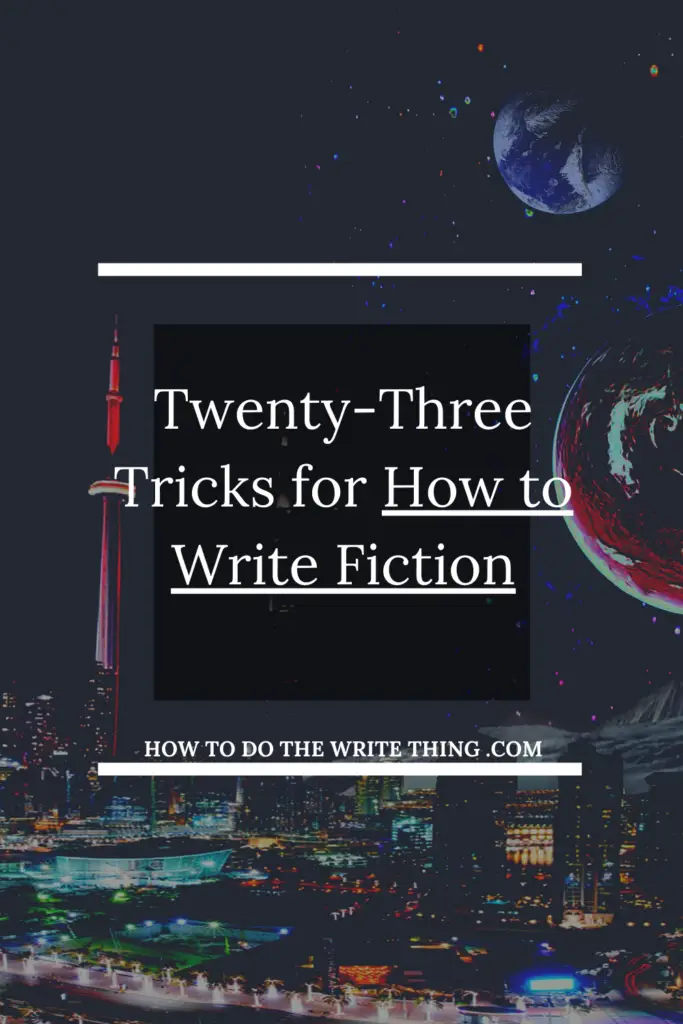
Interested in starting a blog of your own? Check out Bluehost.
After checking out Bluehost, see how we made a profit FAST with our blog and how you can too: Our #1 Easy way that we made a profit with our blog on year 1, not year 5.
Need a Cheaper Plan? Try DreamHost.
Try Grammarly, The Free tool that should be in every writer’s toolbelt.
Make sure your posts are readable. Use this readability score check
Want to check out a writer’s community to test your writing and get feedback?
Check out these FREE trial resources from Amazon for when you work from home (or are stuck at home 🙂 ) As an Amazon associate, if you do sign up or buy anything using Amazon links from our site we make a commission at no extra cost to you.
Free Prime Membership Trial:
Try Amazon Prime 30-Day Free Trial
Try Prime Discounted (Free Trial)
Make your Free Amazon Wedding Registry:
Create an Amazon Wedding Registry
Get Free Video Channels Trial with Prime:
Join Prime Video Channels Free Trial
Try a Free Amazon Family Trial:
Join Amazon Family (30-day Free Trial)
Get Unlimited Music for Free (30-day free trial):
Free movies and TV shows trial:
Join Amazon Prime – Watch Thousands of Movies & TV Shows Anytime – Start Free Trial Now
Free Prime for students trial:
Free Baby Registry:
Shop Amazon – Create an Amazon Baby Registry
Free trial of Twitch Prime:
And for when you REALLY work at home:
Create Amazon Business Account
It is the Amazon you love, for work. Make workplace procurement easier with convenient delivery options, simplified purchasing workflows, multiple payment options, and a competitive marketplace with business-only pricing and quantity discounts. Anyone who makes purchases for work (eg. procurement specialists, office administration, IT departments, etc.) can create a FREE account for their business. Customer must be from a verified business in order to successfully create their Amazon Business account.
Twenty-Three Tricks for How to Write Fiction
Enjoying Twenty-Three Tricks for How to Write Fiction? Take a moment and consider sharing this social-friendly image to say thanks and feel free to comment with your thoughts below! 🙂
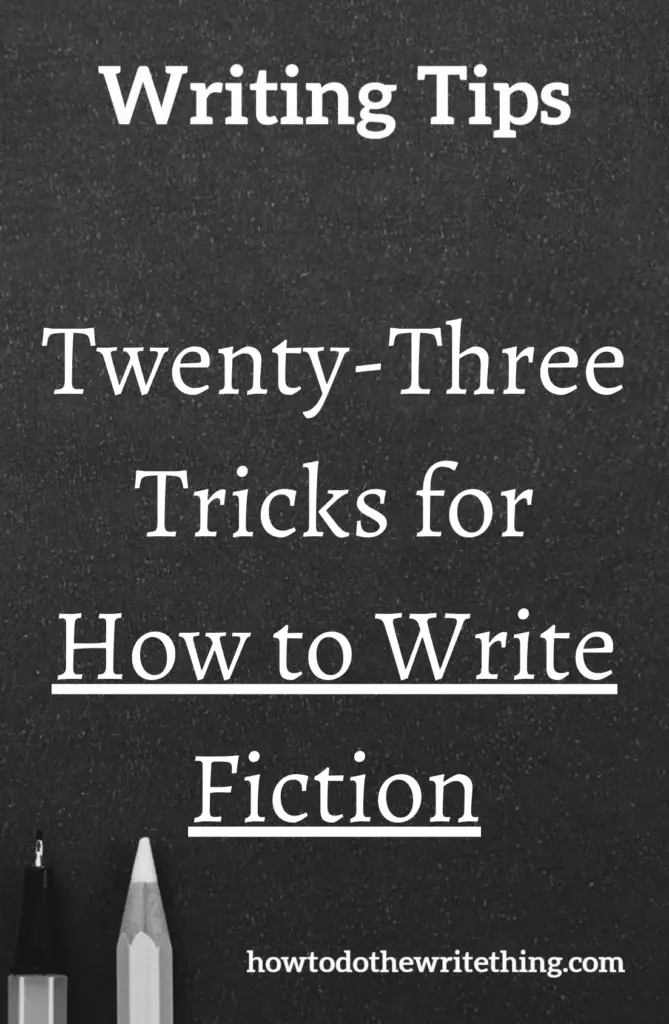
Interested in starting a blog of your own? Check out Bluehost.
After checking out Bluehost, see how we made a profit FAST with our blog and how you can too: Our #1 Easy way that we made a profit with our blog on year 1, not year 5.
Need a Cheaper Plan? Try DreamHost.
Try Grammarly, The Free tool that should be in every writer’s toolbelt.
We hope you enjoyed: Twenty-Three Tricks for How to Write Fiction!
